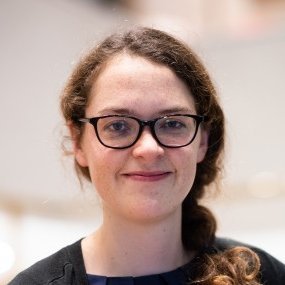Who are Women Speakers in Healthcare?
Women Speakers in Healthcare (WSH) is a grassroots database organisation, co-founded by five NHS women in 2019. We were brought together by a shared frustration that women remain underrepresented on panels and as speakers at healthcare conferences and events, despite comprising the majority of the health and social care workforce. This gender imbalance is also reflected in leadership positions across the sector. Diversity benefits everyone, and we believe that every healthcare conference and event should have balanced gender representation, with parity of opportunity for all.
WSH seeks to redress this imbalance by collating a database of women speakers from all professional backgrounds, regions and levels of seniority and by working with conference organisers to provide women speakers for events. All women speakers fill in a short form self-identifying their interests and areas of expertise and experience and are asked in turn to nominate other women speakers who are then invited to sign up to the database. Men can sign up as male allies, to support women colleagues and challenge the status quo. Through affirmative action, we seek to counter any excuses from conference organisers that they “couldn’t find a woman to speak” or “none were available”. We can solve this problem.
From humble beginnings, WSH has grown a database of >800 speakers, provided speakers for >100 events and continues to raise awareness both of our work and wider issues affecting women in healthcare through a Twitter network of over 4000 followers.
Have we made a difference?
To measure impact, as for any intervention, we first need to decide which outcomes we are interested in. Our primary aim is to achieve gender balance across all conferences and events, with parity of opportunity for all.
Anecdotally, things seem to be improving. Ask anyone and they will name you high-profile women in healthcare who have spoken up, led change and had great impact – Professor Dame Jane Dacre, Dame Clare Marx, and Professor Sarah Gilbert, to name just a very few. We applaud the work of these trailblazing women, who forge a path through untrodden territory that other aspiring women leaders in healthcare may follow. More women than ever are graduating from medical school and entering healthcare professions. In addition, WSH has challenged a number of conferences with all male speaker line-ups and panels (“manels”) and offered a solution, by providing speakers for events where women would otherwise be underrepresented. We believe that overt gender imbalance is becoming increasingly culturally unacceptable and that more people are aware of the need for diversity to ensure better experience and outcomes.
However, we still have some way to go. In a study published last year looking at speaker line-ups at medical conferences, 12/20 (60%) had an overall predominance of male speakers (1). The statistics look even more disappointing when considering ethnicity, with a median percentage of Black, Asian and minority ethnic (BAME) speakers ranging from 9 to 18% and no BAME speakers at 1 in 5 of the conferences studied. At the same time, we continue to receive tweets and emails at WSH challenging the need for our work in the modern era, and suggesting that the problem has already been fixed.
What more needs to be done?
We believe that our ongoing work is important, creating a platform for speakers so that women’s voices can be heard and engaging men and women from all professions in our mission.
However, there is so much more to do.
We all have a role to play as individuals. Event organisers need to think about how speakers are selected. Asking a speaker because they “were very good before” or “were recommended by a previous speaker” will limit diversity and perpetuate the status quo. Instead, why not ask speakers who have similar experience and expertise but have not previously been given the opportunity to prove themselves. You might be surprised by what you hear.
As attendees, we should be empowered to challenge conference organisers who do not do this, and instead organise events lacking gender balance and parity of opportunity for speakers from all backgrounds. Remember, offering the stage for others may sometimes involve standing aside yourself.
We must continue to engage leaders across healthcare in our work, to advocate for diversity, and to drive the system- and organisation-level changes we need at the highest levels.
As we celebrate the achievements of women on International Women’s Day 2022, why not use the opportunity to join us as a speaker, conference organiser or male ally. It only takes five minutes and for each database signup or Twitter follower, we move one step closer to achieving the gender balance we wish to see at conferences and events and across health and social care more broadly.
Alone, we cannot change the way things are and certainly cannot change what has already been. However, in the words of Mother Theresa, we can “cast a stone across the waters to create many ripples”. If we all throw stones, we can create a wave.
Reference
- Prathivadi Bhayankaram K, Prathivadi Bhayankaram N. Conference panels: do they reflect the diversity of the NHS workforce? BMJ Leader. Published Online First: 02 March 2021. doi: 10.1136/leader-2020-000361

Dr Rose Penfold
Dr Rose Penfold is an Academic Clinical Fellow in Geriatric Medicine working in South London and a co-founder of Women Speakers in Healthcare (WSH). She writes on behalf of WSH, the largest database of women speakers across health and social care in the UK and an organisation committed to gender balance and parity of opportunity across the sector.
Declaration of interests
I have read and understood the BMJ Group policy on declaration of interests and declare the following interests: I am a co-founder and co-director of Women Speakers in Healthcare.